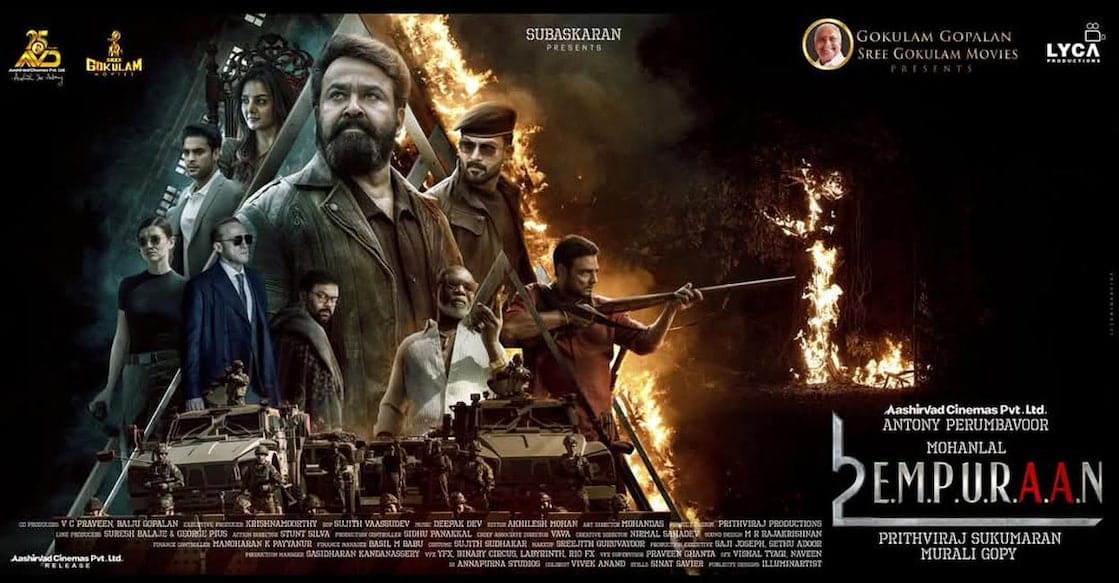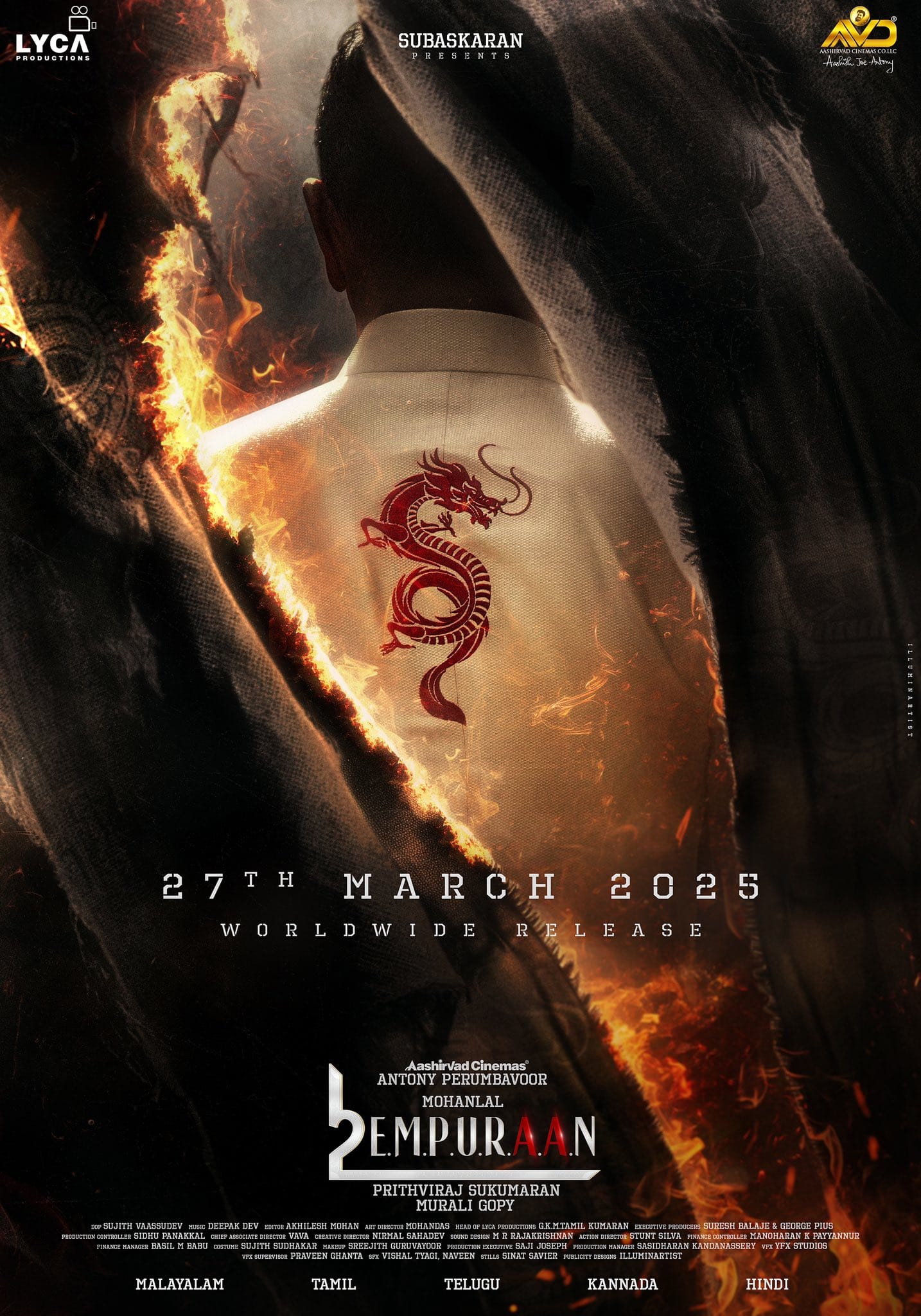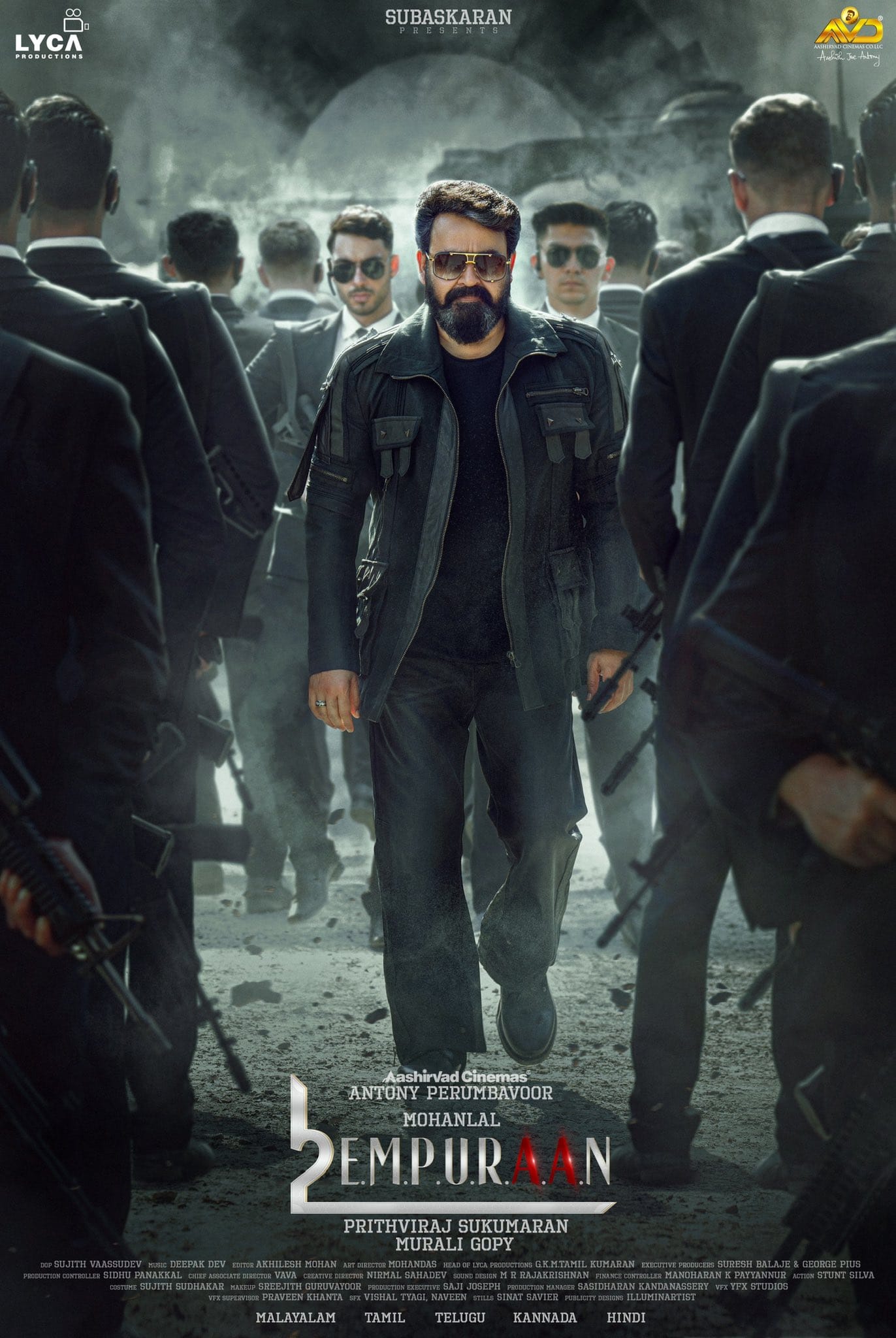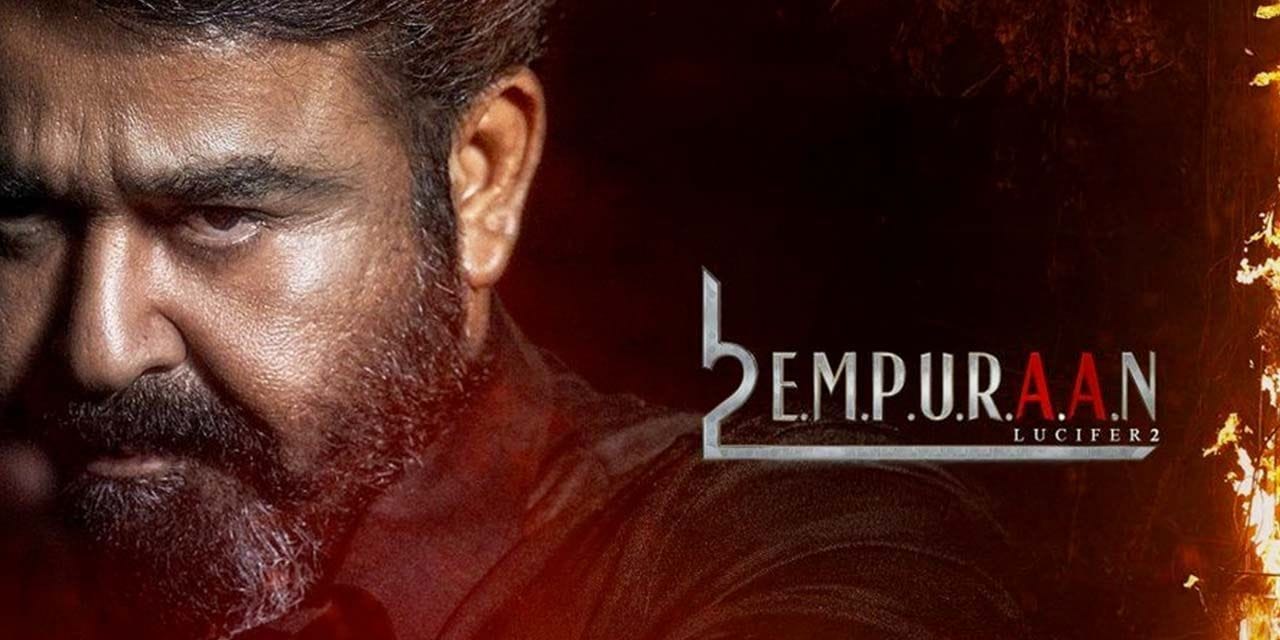Kerala’s political landscape has often been the subject of humour in commercial Malayalam films since the early 2000s till around 2015 when creators decided to make films that would be taken seriously by the masses. Ministers were often portrayed as the stereotypical agents of corruption who will do anything to add another comma to their bank balance. In real life, although the conduct of many ministers did nothing to improve that perception, nobody bothered harassing the makers of such films since they were largely unaffected by these satirical portrayals.
A serious and scathing criticism of the ruling establishment in the state never made its way into the films until Lucifer released during the summer of 2019. Although it marketed itself as an action thriller, its political undertones didn’t go unnoticed. In fact, the nuanced criticism of the nature of politics in the state of Kerala was one of the highlights of the film. At the time, it was unparalleled in the manner in which it delved into the shady dealings and unspoken pacts which happen behind the scenes between apparent political rivals.
Though the film was somewhat of a cliched star vehicle for Mohanlal, it had layered characters and incorporated multiple political allegories. Yet, it only flirted with religious commentary largely because, at the time, the extent of the religious divide in Kerala wasn’t considered serious enough to have a conversation about it.
With the sequel comes a bigger budget and a bigger scope. Suddenly, the stage isn’t limited to Kerala anymore. By the time Empuraan takes place, six years have passed and, much like in the world, the political landscape of Kerala has also changed with the arrival of a new national political party which draws its massive strength and numbers from the communal divide in the nation.
The plot contains references to the 2002 Gujarat pogroms and how the perpetrators involved in it have shaped modern Indian politics.
To understand why many of the legitimate criticisms made by the film against the establishment have been so negatively received by the right wing elements of the country, we need to take a look at some of its major references to current and historical affairs.
The nexus of religion and politics in Empuraan
The main antagonist of Empuraan is Baba Bajrangi – a reference to the infamous leader of the Bajrang Dal and the mastermind behind the Naroda Patiya massacre during the Gujarat pogroms which saw at least 97 muslims murdered. Over the years since 2002, Baba and his accomplices have formed a political party called the Akhanda Shakthi Morcha which has attained incredible political power across the nation and is now trying to make inroads into Kerala.
Over the years since 2002, Baba and his accomplices have formed a political party called the Akhanda Shakthi Morcha which has attained incredible political power across the nation and is now trying to make inroads into Kerala.
Baba, under the guise of a man who wants to uplift the lives of Hindus in the state and promote the spread of Hindutva, really wants to exploit Kerala’s long coastline and multiple internationally connected airports for personal gain. For this, he orchestrates a break up of the ruling party and forms a coalition with one faction in the run up to the assembly elections.
Predictably, the RSS has not taken kindly to the way in which the Shiv Sena split has been referred to here and the allegation that BJP politicians advocating for the spread of Hindutva have ulterior motives of personal gain.
The empire strikes back
This manner in which the central agencies have been weaponised by the government to silence its critics is something we see at least once a month. When people who have an audience in this country take a stand against the government, they are immediately met with a raid conducted either by the ED or IT department.
There is a sequence in Empuraan where Manju Warrier’s character – an up and coming voice in Kerala politics – addresses her party members and predicts that if those in power at the centre feel threatened by her, they will issue a non-bailable arrest warrant for her and she will be taken away by a central agency. As predicted, the antagonist tells the Home Minister to make the NIA pay her a visit. They arrive at the end of her speech and take her into custody in handcuffs.
Ironically, even the makers of Empuraan aren’t shielded from this as a few days after the film’s release, there were ED raids at Antony Perumbavoor’s (one of the producers) office and residences. While the reasons for the raids may sound legitimate, the timing is extremely suspicious especially when one of the reasons for the raids was to investigate the alleged financial discrepancies during the production of one of Antony’s older films.
The lead actor and director are also not exempt from such raids which dig up obscure transactions done in the past and claim some technical irregularities to intimidate or silence dissenting voices.
The lead actor and director are also not exempt from such raids which dig up obscure transactions done in the past and claim some technical irregularities to intimidate or silence dissenting voices.
Many have attributed these retaliatory actions as a direct result of the makers’ decision to depict the Gujarat riots as truthfully as possible.
Empuraan: Mohanlal’s apparent betrayal
In any conversation about the political position of Empuraan and its makers, one needs to include the driving force behind the film – its director. Prithviraj Sukumaran made his directorial debut with this film’s predecessor – Lucifer. It came at a time when the actor was transitioning towards more serious roles and took a keen interest in projects which were anti-establishment in nature.
One only needs to take a look at his portrayal of a lawyer in 2022’s Jana Gana Mana to understand which side of the political spectrum his views fall into. The film took aim at the tendency of the media in this country to publish sensational news and the government’s tendency to use such news topics to manipulate people’s emotions. This view was aptly summarised a few years ago in Prithviraj’s own directorial debut, Lucifer where the editor in chief of a fictional news channel remarks ‘Idealism, darling, is dead’.
However, Mohanlal is someone who has been seen as drifting towards the BJP for quite some time now. Although the actor is someone who rarely talks about politics and refrains from making public statements, the state BJP unit and Sangh Parivar (an umbrella term used to refer to right wing organisations like RSS, VHP and ABVP in Kerala) were all but sure about making him the poster child of BJP in Kerala. Due to that, his involvement in Empuraan came as a betrayal to many right wing organisations in the state who have gone to the extent of asking for the honorary rank he holds in the Indian Army to be revoked.
A society that sees what it wants to see
Certain publications have alleged that Empuraan is anti-Hindu and has an agenda to further divide people along religious lines. What they won’t mention are the countless real life instances of Hindus risking their lives to protect Muslims from the wrath of the mob in 2002. Despite depicting this aspect in the film, the ones who have chosen to call the film and its makers Hinduphobic have conveniently overlooked that major plot point.
Much has been said about the way Empuraan predicted the outrage it received from certain sections of society. While some criticisms of the film tend to focus on the lack of nuanced storytelling when compared to the prequel, one must realise that when criticising people in power who have a long track record of being reactionary when it comes to suppressing dissent, nuance goes out of the window.
Empuraan may be polarising, but that, in a way, is its strength. It reflects a society grappling with trust, identity, and leadership.
Empuraan may be polarising, but that, in a way, is its strength. It reflects a society grappling with trust, identity, and leadership. It asks uncomfortable questions about who holds power, who controls the narrative, and who decides what’s right. These are questions that should always be asked regardless of the number of attempts to silence the people.







